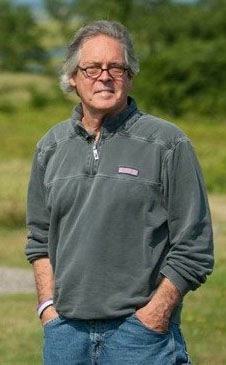Dementia
Finding Faith in Alzheimer’s
As the brain atrophies in Alzheimer’s, the soul endures.
Posted July 31, 2019 Reviewed by Kaja Perina
“To get something you never had, you have to do something you never did. When God takes something from your grasp, the Lord is not punishing you, but merely opening your hands to receive something better.” —Jose N. Narris, A Story of Faith, Hope and Love

Beyond the pain, the isolation, the horrifying symptoms, there are blessings in Alzheimer’s. But you have to pursue them.
Today, there are far more downs than ups in my journey as the demon Alzheimer’s slowly, yet progressively, works its serpentine way within my brain: far more rage, loss of self, greater short-term memory loss, intense hallucinations and isolation, more withdrawal from family and friends, not recognizing people I’ve known all my life, fighting to stay in the moment, deeper depression, a black hole of despair. And bankruptcy on the rise.
It’s a death of a thousand cuts. On Father’s Day, for the first time, I couldn’t even remember my wife Mary Catherine’s name. I had to ask her on the back deck of our home on Outer Cape Cod. We’ve been married 43 years. And, I just got word that my cancer is on the rise.
However, the Lord is good. Despite Alzheimer’s, the Lord has blessed me, through my parents, with a good intellect, a bucket of “cognitive reserve,” and what doctors call “neuroplasticity”—the ability at times to re-circuit the brain. The Lord has taught me, as did my mother, who died of Alzheimer’s, to speak and write through the heart, the place of the soul, when the mind fails. As the brain atrophies in Alzheimer’s, the soul endures.
A HealthDay report on a recent Johns Hopkins study suggests that “being smart and highly educated may not prevent Alzheimer's disease, but it appears to delay the disease's impact on everyday life… Researchers can't prove that that's the case, but their data suggests it might be.”
I’ll go one better in the fight against Alzheimer’s: faith in the Almighty, who offers grace in dementia. The Lord works in mysterious ways.
Finding faith in Alzheimer’s, while researchers race for a cure, is the subject of a new book, published by Jessica Kingsley Publishers of London and Philadelphia: Dementia-Friendly Worship. Compiled under the auspices of UsAgainstAlzheimer’s, the book, a multi-faith handbook for chaplains, clergy, and faith communities, offers critical perspectives from contributors of a wide range of faiths and cultural traditions, as well as those living with the disease. I was honored to have been asked to contribute.
In my trek in this disease, I’ve walked in roles as a caregiver and now as a patient. As the oldest boy in an Irish family of 10, I was the family caregiver on the Cape for my parents during their assaults with Alzheimer’s and dementia, which also took my maternal grandfather and my paternal uncle. After my diagnosis and a wallow of pity, the Lord pulled me out of my abyss and exhorted me to get back into the race—the sprint of persistence and endurance for the prize of the Old and New Testaments. “When we are weak,” my mother continually echoed, “God is strong.”
I’ve learned it the hard way.
For the record, I’m a perfectly, imperfect person, an individual who over time has committed every sin imaginable but murder and adultery, and I’ve been tested in both. Yet, I have also been blessed with a gut, unshakeable faith; it is a gift that I embrace more and more with the progression of this disease, as others.
God has given me a purpose in Alzheimer’s, though the Lord had to persuade me head-on. Twice, I tried to leave the planet prematurely—isolated in rage and deep depression. I’m not proud of that. There are times now that I feel like Job in the Old Testament, losing everything. But God has spared me my writing for now—the Lord’s gift to me. I take no credit for it.
My journey, as with the voyage of others, is not just about Alzheimer’s and a cure; it’s about reaching for faith in this disease when medicine, at the moment, cannot fix it. It’s about the spiritual side of life, looking into the mirror, confronting my imperfections, my demons, and knowing that I am forgiven. It’s about healing in every sense of the word, about walking toward eternity with dignity. The Lord, I believe, often picks the best sinners to help lead the way. No surprise that it’s become my assignment.
In my chapter in the worship book, Rocks In My Head, I write about when I was a 24-year-old cub reporter on the Cape, a typical Irish dumbass, frequenting the bars, chasing women. I was at a bar one night after a newspaper deadline. The Beachcomber tavern sits on a sea cliff, overlooking the rolling Atlantic, and on this particular night, a moonless night sky was lit by the Milky Way. Yet, I felt the urge to leave the bar; it wasn’t fun anymore. I was searching; there had to be something else.
So I drove up the road in my beat-up, vintage Triumph sports car, top down, rusted muffler, and piercing the quiet of the night. I sat by myself on a bluff high above the sea and stared at the sky. It was as if someone had flicked the heavens with flecks of white. Millions of them. I was at the stage of my life where I was questioning everything, I was reaching out: What the hell is the purpose of life? Who is God anyway? Is God real?
I was firing questions in my soul like clay pigeons in a skeet shoot. And God, the universe, not sure who at the time, was shooting them down. Pop. Pop. Pop. No other way to say this, but I was drawn in and felt in that moment that I was in a conversation with someone, not sure who, but I began to trust that the heavenly view before me was not created by chance and that all of us have a purpose.
I kept coming back at night throughout the summer. The conversation continued. My trust grew.
Months later, in early September, I went for a run on stunning Nauset Beach in Orleans on the Outer Cape. With the approach of the fall equinox, the sun lowers, and the sky turns a perfect azure blue. On this particular afternoon, with a slight wind at my back, I felt a peace I had never experienced. The peace intensified. Finally, in my trust, I cried out, “God, if this is you, let me feel you, let me know…”
Within seconds, I was crying and knelt quietly in the sand. I heard clearly that day in my heart, in my soul: “Yes, I am real, and I will never leave you!”
I’ve never looked back in doubting God. Though ashamed of my walk at times, I know God is not someone’s imagination. There are worst things than sin, I have learned—giving up!
It can be difficult separating the mind from the soul. It takes work. The mind is just the gateway. Most don’t fully comprehend dementia. The word literally scares the hell out of them—a biblical demon howling in the desert. Others opt for the simple drive by—a smile, handshake, “Hi, ya,” a reassuring word, or a blank stare. Who could blame them? But there is much to learn, much to do, in the spiritual fight against Alzheimer’s, which is poised to take out the Baby Boom Generation and other generations to come.
UsAgainstAlzheimer’s co-founder George Vradenburg, a former executive with CBS, Fox, and AOL/Time Warner, said it best about the fight against Alzheimer’s: “This is a battle… we’re going to win because we’re going to lose so many along the way.”
It’s faith now that leads the way.




